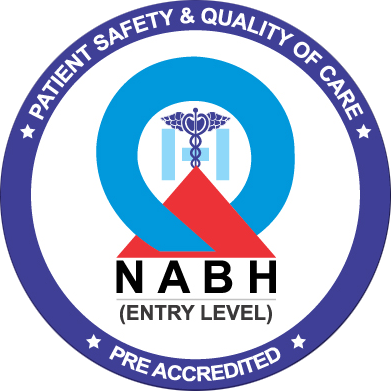
Epiretinal membrane, also called macular pucker, is a thin layer of fibrous tissue that forms on the surface of the macula, the part of the retina responsible for sharp, central vision. Although often thought of as an aging-related condition, it can occur in any age group and can cause serious visual impairment if not treated. The knowledge of causes, symptoms, and treatment is essential for proper management and preservation of good eyesight.
Macretina Hospital is the best eye clinic in Indore and offers the most advanced diagnostics and treatments for epiretinal membranes, ensuring expert care tailored to your needs.
Causes of Epiretinal Membrane
Exhaustive causes for epiretinal membrane development vary from person to person, but many medical professionals believe that it develops due to natural aging processes or other underlying conditions. Here are the primary causes:
Aging
As people age, the vitreous gel inside the eye starts to contract and pull away from the retina. The process is known as posterior vitreous detachment (PVD), and it can cause the stimulation of a thin layer of scar tissue, which leads to ERM.
Eye Injuries or Surgeries
It can be caused by traumatic injury to the eye, including retinal tears or detachment. In some cases, eye surgery, such as the removal of a cataract, may lead to the development of an ERM.
Retinal Disease
Diseases of the retina, including diabetic retinopathy, uveitis (inflammation of the eye), or occlusion of a vein in the retina, can predispose to ERM because these conditions alter the retinal structure and cellular behavior.
Idiopathic Causes
At times, the cause remains unknown. These idiopathic cases are more common in older patients who have had no traumatic history and who have no other retinal diseases.
Symptoms of Epiretinal Membrane
Epiretinal membrane symptoms can vary from mild to severe, depending on how thick the membrane is and its effect on the macula. Symptoms of the condition include the following:
- Blurred Vision: A gradual dullness of vision usually marks the first presentation.
- Distorted Vision (Metamorphopsia): Straight lines can appear wavy, bent, or irregular.
- Double Vision (Diplopia): Some patients experience overlapping or shadowed images in one eye.
- The trouble with the ability to read or do any detailed task: The weakness in sharpness of central vision will make everything as reading, sewing, or driving difficult.
- Reduced Contrast Sensitivity: Colors and contrasts may become dulled or washed out.
- In later stages, vision loss may be marked, although complete blindness is uncommon.
Diagnosis of Epiretinal Membrane
A diagnosis of epiretinal membrane requires a complete examination from a specialist. Current diagnostic equipment used in superior hospitals such as Macretina Hospital includes:
Dilated Eye Exam
An ophthalmologist views the retina and macula through specialized equipment to detect abnormalities such as membrane formation.
Optical Coherence Tomography (OCT)
OCT is a non-invasive imaging method used to offer detailed cross-sectional images of the retina. This enables the accurate assessment of the thickness of the epiretinal membrane and its impact on the macula.
Fluorescein Angiography
The procedure involves the introduction of dye into the blood system to observe blood flow and diagnose any coexisting retinal disease, including vascular problems.
Treatment Options of Epiretinal Membrane
The treatment strategy for the epiretinal membrane is determined based on the severity of symptoms and the visual impairment degree.
Observation
For mild cases when the membrane has very little effect on vision, observation alone may be all that is required. The ophthalmologist monitors changes by conducting periodic eye exams.
Surgical Treatment: Vitrectomy
Vitrectomy is the main surgical intervention for significant epiretinal membranes. Involves:
- The removal of vitreous gel from the eye.
- Carefully peeling away the epiretinal membrane from the surface of the macula.
This surgery is usually conducted under local anesthesia, and many patients walk out of the surgical room with improved vision and significantly decreased distortion.
Post-Surgical Care
Medicated eye drops are often prescribed to avoid infection and inflammation following surgery. Regular follow-up appointments are crucial for proper recovery.
Management of Epiretinal Membrane: Lifestyle and Preventive Tips
While it may not always be possible to prevent epiretinal membrane, certain habits can be adopted to maintain general retinal health:
Eye Exam Routine
ERM can be early detected, like other retinal problems, during check-ups, especially after age 50.
Protect Your Eyes
Protective eyewear should be used for activities that can potentially cause eye injuries
Maintain Your Chronic Conditions
Keeping diabetes, hypertension, and other systemic conditions under control will reduce the chances of retinal disorders.
Quit Smoking
It elevates oxidative stress, which damages the retinal tissues.
Stay Informed
Consult a retina specialist to understand your risk factors and ensure timely intervention.
Why Choose Macretina Hospital?
Macretina Hospital combines cutting-edge technology with expert care to provide comprehensive solutions for retinal conditions like epiretinal membranes. With state-of-the-art diagnostic tools and advanced surgical facilities, patients receive the best possible care for their vision. If you’re searching for the best eye clinic in Indore, Macretina Hospital is your trusted partner in eye health.
When to See a Specialist
The following must be consulted with an eye care professional:
- Persistent blurry or distorted vision.
- Troublesomeness in executing simple and routine tasks of life as a result of low definition in vision.
- Vision disturbance after surgery or trauma of the eyes.
Macretina Hospital has an expert team who conducts their work under the guidance of top ophthalmologists. The treatment will thus correspond to every individual’s requirements.
Conclusion
Epiretinal membrane is a condition that can have a significant effect on one’s vision, but early diagnosis and timely intervention can help effectively manage its effects. Understanding the causes, recognizing symptoms, and finding the right care are all important in maintaining healthy eyes. Be it regular follow-up or advanced surgery, facilities such as Macretina Hospital ensure the most world-class care for your eyes to remain sharp and bright.
For more information or to schedule an appointment, consult the specialists at Macretina Hospital today!

